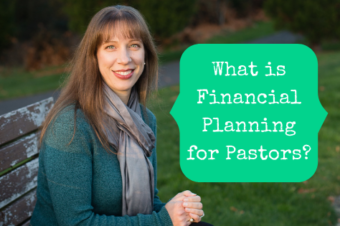
You need help with your finances. This blog just isn’t quite enough. You want advice from someone who knows more than you do but you don’t want to end up with Bernie Madoff. What do you do?
There are around 350,000 people in the US who call themselves financial advisors. Some of them are amazing and would make your life infinitely better. And some just want to make money and don’t really care about you. How do you separate the wheat from the chaff?
How To Search For A Financial Advisor
Know Your Goal
The first thing you should do after deciding you want to work with an advisor is to clarify what it is you want to accomplish. Are you just looking for a life insurance policy? Do you want someone that will help you map out a plan for your finances that you can take and run with? Are you looking for someone to manage your investments for you? Do you just want to know if it’s okay to retire or if you should keep working a couple more years?
Most advisors cannot do all of those things so it is important to know what exactly it is that you’re trying to accomplish. Knowing your end goal will help you narrow down the 350,000 advisors that you have to choose from.
Ask For References
Next, ask family and friends if they have a trustworthy financial advisor that they think you would get along with and can provide the services that you are looking for. You have to ask individuals and not a search engine for this one. I know that for most things you can do a quick search and read reviews about whatever it is that you’re looking to purchase.
Unfortunately, it doesn’t work that way with financial advisors. Financial advisors are subject to a lot of regulations, including some very strict ones regarding marketing. They are not allowed to ask for online reviews. (If you see a review about an advisor, the person left it without being asked.) They are not allowed to provide testimonials, meaning they are not allowed to have quotes from satisfied clients on their websites or talk about specific things they have achieved for their clients. Because of these rules, many advisors will not provide references if you ask for them. Usually, that would be a red flag, but when it comes to financial advisors you can let it slide.
Look Online
After personal recommendations, start to look online. The end of this article will include some places that you can look. Find at least 3 advisors that you think are worth further review. Then interview them. Most advisors offer free telephone consultations where you can get to know them and their services better before deciding if you want to engage them. If you prefer communicating by email, go ahead and email them some questions. If they tell you they prefer to talk and won’t answer your email questions (which happened to me with a real estate agent), then you know they aren’t a good fit for you!
Questions To Ask A Potential Financial Advisor
Now that you have a few advisors that you want to vet, what do you ask them? How do you determine if they are a good fit or if they will rip you off? Here are some questions to start with:
1. Do you _________________ (insert the service you are looking for)?
Hopefully, the advisor had a good enough website to answer this question, but if you aren’t sure, ask. You don’t want to waste your time getting to know an advisor that doesn’t provide the services you’re looking for.
2. How are you paid?
Advisors are paid in a number of ways. This article goes through them in more detail. You want to make sure that the advisor is paid in a way that you are comfortable with and will not erode your trust.
3. Are you a fiduciary?
This article explains what that word is, how to pronounce it, and why it matters. Basically, some advisors are legally required to do what is best for their clients and others are legally required to do what is best for their company, as long as it’s okay for their client. A fiduciary is the first one. Some advisors say they are fiduciaries when they are not, so make sure they would be willing to put it in writing.
4. What education, experience, and certifications do you have?
You want to make sure that the advisor actually knows what they are talking about. The top certification for financial advisors is the Certified Financial Planner (CFP) certification. To be a CFP, you have to do 6 college-level financial courses, take a grueling exam with a 62% pass rate, have several years’ worth of experience, do a certain number of continuing education hours each year, and adhere to an ethical standard. Most CFPs also have at least a Bachelor’s degree. (Some old ones don’t, but their years of experience likely make up for it.) There are good advisors who are not CFPs, but having the certification guarantees a minimum level of knowledge and experience. (You can verify someone’s CFP status here.)
When it comes to experience, tread lightly. A highly-experienced advisor may be technologically illiterate and therefore hard to work with and a new advisor may be part of a network where he or she can find answers to questions that they cannot answer themselves. If you are interviewing a new advisor, ask them if they have a network or a more experienced mentor that they can turn to for help when they need it.
5. What experience do you have with ministerial finances?
As you probably know by now, pastors have a lot of unique issues when it comes to finances. A financial professional who doesn’t understand them can get you into a lot of trouble. A good test is to ask how pastors are treated for tax purposes. Someone who knows what they are talking about will say that they have dual tax status. Someone who doesn’t know what they are talking about will be confused by the question.
6. How do you work?
Do you want to meet in person, over the phone, or through video conferencing? Is your preference to sign and fill out papers online or do you want paper copies in the mail? Do you send out weekly emails or will I only hear from you when we are due for a meeting or there is a major event? Every advisor runs their business a little bit differently. It’s important to make sure that you are compatible with the way that they work.
7. Have you ever been investigated by a regulatory body or convicted of a crime?
Most advisors don’t get this question because it makes people uncomfortable to ask it. So, ask it and see how the advisor responds. It might be a lot of fun. If you want to double check their answer, you can review their Form ADV here or look at FINRA’s Broker Check.
As you talk to the advisor, gauge your comfort level with them. Do you feel comfortable asking questions? Also, assess their communication style and ability. Are they good at explaining things? Do you feel like you can connect with and understand them?
It’s a good idea to review the advisor’s website to see if you can answer any of these questions ahead of time. Then you can save some time on the phone or ask even more specific questions based on what you found on the website.
Other Things To Look For In An Advisor
The questions above should be the bare minimum that you know about an advisor before you choose to work with them. There are some other things you might want to look into as well.
Location
If you want face-to-face conversation that doesn’t involve a screen, then make sure their location is convenient for you. Not just within your city, but in a place that you won’t dread driving to. If coronavirus has made you comfortable with virtual meetings, then you have many more options available to you.
Worldview
You may want to look for an advisor that shares your worldview. Don’t just hire an advisor who claims to be Christian, but that may be something you want to address. It goes far beyond religion, though. If you’re Latino, you may want to look for an advisor who is as well or at least understands the Latino culture. ¡Porque las culturas no son iguales! Your financial advisor doesn’t have to be exactly like you, but it can make it easier to understand where you are coming from.
Specialized Knowledge
I already mentioned making sure the advisor understands pastoral finances. But your situation may be even more unique than just that. There are advisors with specialized knowledge relating to rental properties, planning for special needs children, paying off student loans, and even homeschooling!
Where To Find An Advisor
Now, where are all of these amazing, trustworthy, uniquely specialized financial advisors hiding?
- Christian Financial Advisors Network– These are all both Certified Financial Planners and Certified Kingdom Advisors in addition to offering fee-only advice. They are not just Christians at home, but their businesses are also openly Christian.
- XY Planning Network– All of these advisors are Certified Financial Planners who are willing to work virtually, and you can even search for Christian advisors or ones who work specifically with pastors.
- Kingdom Advisors– All of these advisors have been trained in biblically wise financial advice and ascribe to a Christian perspective, though they may not all be fiduciaries.
- National Association of Personal Financial Advisors– These advisors are all fiduciaries and have extensive training as Certified Financial Planners.
- Garrett Planning Network– These are all fee-only advisors, so they are fiduciaries and they have no minimum account requirements.




1 Response